#eurovision 1986
Explore tagged Tumblr posts
Text
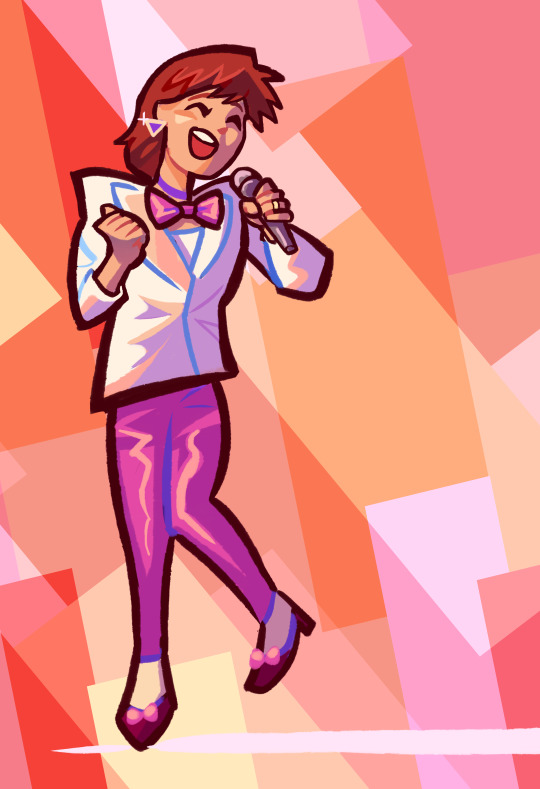
🇧🇪 Sandra Kim - J'aime la vie
#Sandra Kim#j'aime la vie#esc belgium#belgium esc#eurovision belgium#belgium eurovision#esc 1986#eurovision 1986#our youngest winner! :D#these triangle earrings were popular back then i think#this song ALWAYS makes me happy
46 notes
·
View notes
Text
youtube
L'amour De Ma Vie, Sherisse Laurence | Luxembourg, Eurovision Song Contest 1986
3rd place with 117 points
6 notes
·
View notes
Text
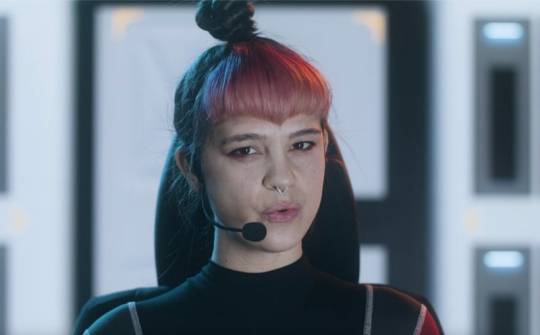
Rykka
Gender: Non binary (they/them)
Sexuality: Queer
DOB: 13 March 1986
Ethnicity: White - Canadian / Swiss
Occupation: Singer, songwriter
Note: Represented Switzerland in Eurovision 2016
#Rykka#queerness#lgbt#lgbt people#lgbt+#non binary#queer#1986#white#swiss#canadian#singer#songwriter#eurovision
44 notes
·
View notes
Text
Del’s Favourite Songs Poll: 2000s
Honestly this could have all been 2007
Songs under the cut:
youtube
youtube
youtube
youtube
youtube
#eurovision#favourite song polls#confession time: I have been (mostly) avoiding songs that were in unibrowzz polls#I mean I had Luxembourg 1966 but there's not that many songs in the 60s to pick from#but I did briefly consider Norway 1986 for the 80s poll#and did avoid Sweden when trying to pick which two 2007 songs I'd go for in this one for that reason#decided to do it this way cause I already gushed about those songs in the tags and I want to share some other faves of mine
9 notes
·
View notes
Text

Ketil Stokkan: Romeo - Grand Prix Eurovision 1986 in Bergen
9 notes
·
View notes
Text
Eurovision Fact #490:

Bergen is the northern-most city to have hosted the Eurovision Song Contest.
[Source]
Bergen 1986, Eurovision.tv.
14 notes
·
View notes
Photo

Das Logo des Eurovision Song Contest 1986 kombiniert Farben und geometrische Formen, symbolisiert Vielfalt und das verbindende Element der Musik. Den ganzen Artikel gibt es hier: https://nordischepost.de/unterhaltung/design/entwicklung-und-bedeutung-des-logos-des-eurovision-song-contest-1986/?feed_id=85041&_unique_id=66b4ea952a01f
#Design#1986#Bedeutung#Contest#Culture#des#Entwicklung#Eurovision#Event#Logo#Logos#Music#song#SongContest#und
0 notes
Note
You gonna watch the 1986 Transformers movie?
i have seen the 1986 transformers movie i think uhhh. 3 times?
the first time was at a movie night at university and i had no idea what was going on
2nd time was earlier this year when me and my friends got together the night of eurovision. we had agreed to boycot the show and instead watch 'whatever the opposite of eurovision is'. i left the room for a while and when i came back they'd put on transformers 1986 which we all agreed is the opposite of the eurovision song contest.
we watched it again a few weeks later and having missed the beginning on eurovision night i was startled at how violent it was and then proceeded to not understand what was going on
agreed w my friends that we would re-watch it once i was done with s2 of the show so we are doing that later today. i will report back on if i actually understand the plot this time.
34 notes
·
View notes
Text
Their Favorite Eurovision Songs 1956 - 2024 (Headcanons)
Rise!Turtles + Bonus!

A/N: I was just so hyped to see that Albania had chosen Shkodra Elektronike with Zjerm to represent them in Eurovision 2025, that I just HAD to write this. Two songs into 2025! Let’s see if it will get as chaotic this year like it did last year😂😅💚

Warnings: Flashing lights

Raphael:

1 points: TiTAN - Besa (Albania🇦🇱, 2024)
2 points: Ai Coração - Mimicat (Portugal🇵🇹, 2023)
3 points: Satellite - Lena (Germany🇩🇪, 2010)
4 points: Only Teardrops - Emmelie de Forest (Denmark🇩🇰, 2013)
5 points: Take Me to Your Heaven - Charlotte Nilsson (Sweden🇸🇪, 1999)
6 points: Ne Partez Pas Sans Moi - Céline Dion (Switzerland🇨🇭, 1988)
7 points: J’aime La Vie - Sandra Kim (Belgium🇧🇪, 1986)
8 points: We Will Rave - Kaleen (Austria🇦🇹, 2024)
10 points: Waterloo - ABBA (Sweden🇸🇪, 1974)
12 points: Euphoria - Loreen (Sweden🇸🇪, 2012)
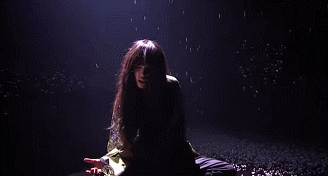
Leonardo:

1 points: Making Your Mind Up - Bucks Fizz (United Kingdom🇬🇧, 1981)
2 points: Euphoria - Loreen (Sweden🇸🇪, 2012)
3 points: Take Me to Your Heaven - Charlotte Nilsson (Sweden🇸🇪, 1999)
4 points: Zorra - Nebulossa (Spain🇪🇸, 2024)
5 points: La Noia - Angelina Mango (Italy🇮🇹, 2024)
6 points: Zitti E Buoni - Måneskin (Italy🇮🇹, 2021)
7 points: Waterloo - ABBA (Sweden🇸🇪, 1974)
8 points: Soldi - Mahmood (Italy🇮🇹, 2019)
10 points: SloMo - Chanel (Spain🇪🇸, 2022)
12 points: Fuego - Eleni Foureira (Cyprus🇨🇾, 2018)
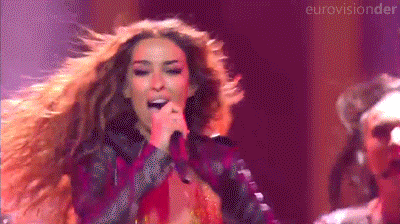
Donatello:

1 points: Because Of You - Gustaph (Belgium🇧🇪, 2023)
2 points: Only Teardrops - Emmelie de Forest (Denmark🇩🇰, 2013)
3 points: Popular - Eric Saade (Sweden🇸🇪, 2011)
4 points: The Code - Nemo (Switzerland🇨🇭, 2024)
5 points: Tattoo - Loreen (Sweden🇸🇪, 2023)
6 points: Waterloo - ABBA (Sweden🇸🇪, 1974)
7 points: Euphoria - Loreen (Sweden🇸🇪, 2012)
8 points: Before The Party Is Over - Mustii (Belgium🇧🇪, 2024)
10 points: Shum - Go_A (Ukraine🇺🇦, 2021)
12 points: Europapa - Joost Klein (Netherlands🇳🇱, 2024)
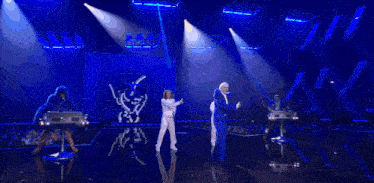
Michelangelo:

1 points: Puppet On A String - Sandie Shaw (United Kingdom🇬🇧, 1967)
2 points: 10 Years - Dadi og Gagnamagnid (Iceland🇮🇸, 2021)
3 points: Moustache - Twin Twin (France🇫🇷, 2014)
4 points: Give That Wolf A Banana - Subwoofer (Norway🇳🇴, 2022)
5 points: No Rules! - Windows95man (Finland🇫🇮, 2024)
6 points: Run Away - SunStroke Project and Olia Tira (Moldova🇲🇩, 2010)
7 points: Rim Tim Tagi Dim - Baby Lasagna (Croatia🇭🇷, 2024)
8 points: Dancing Lasha Tumbai - Verka Sandurchka (Ukraine🇺🇦, 2007)
10 points: Stefania - Kalush Orchestra (Ukraine🇺🇦, 2022)
12 points: Cha Cha Cha - Käärijä (Finland🇫🇮, 2023)

Bonus!
Splinter:
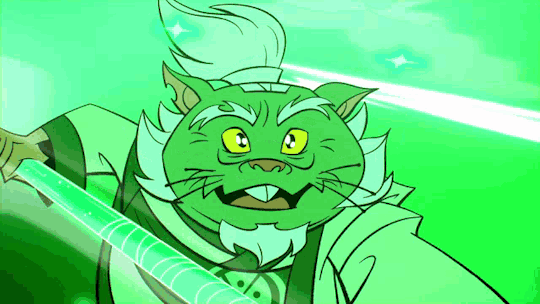
1 points: In A Moment Like This - Chanée and N’evergreen (Denmark🇩🇰, 2010)
2 points: Only Teardrops - Emmelie de Forest (Denmark🇩🇰, 2013)
3 points: Voila - Barbara Pravi (France🇫🇷, 2021)
4 points: Özülne Apar - Fahree (ft. Ilkin Dovletov) (Azerbaijan🇦🇿, 2024)
5 points: Refrain - Lys Assia (Switzerland🇨🇭, 1956)
6 points: Tout L'univers - Gjon’s Tears (Switzerland🇨🇭, 2021)
7 points: Euphoria - Loreen (Sweden🇸🇪, 2012)
8 points: Fly On The Wings Of Love - Brødrene Olsen (Denmark🇩🇰, 2000)
10 points: Teresa & Maria - alyona alyona, Jerry Heil (Ukraine🇺🇦, 2024)
12 points: Waterloo - ABBA (Sweden🇸🇪, 1974)

Baron Draxum:

1 points: De Troubadour - Lenny Kuhr (Netherlands🇳🇱, 1969)
2 points: Rock Bottom - Lynsey de Paul and Mike Moran (United Kingdom🇬🇧, 1977)
3 points: Tout L'univers - Gjon’s Tears (Switzerland🇨🇭, 2021)
4 points: Calm After The Storm - The Common Linnets (Netherlands🇳🇱, 2014)
5 points: Rock ‘n’ Roll Kids - Paul Harrington and Charlie McGettigan (Ireland🇮🇪, 1994)
6 points: Beautiful Mess - Kristian Kostov (Bulgaria🇧🇬, 2017)
7 points: Hold Me - Farid Mammadov (Azerbaijan🇦🇿, 2013)
8 points: Molitva - Marija Serifovic (Serbia🇷🇸, 2007)
10 points: 1944 - Jamala (Ukraine🇺🇦, 2016)
12 points: Amar Pelos Dois - Salvador Sobral (Portugal🇵🇹, 2017)

April:

1 points: Running Scared - Ell and Nikki (Azerbaijan🇦🇿, 2011)
2 points: Only Teardrops - Emmelie de Forest (Denmark🇩🇰, 2013)
3 points: La Noia - Angelina Mango (Italy🇮🇹, 2024)
4 points: Everyway That I Can - Sertab Erener (Turkey🇹🇷, 2003)
5 points: My Number One - Helena Paparizou (Greece🇬🇷, 2005)
6 points: Euphoria - Loreen (Sweden🇸🇪, 2012)
7 points: Shady Lady - Ani Lorak (Ukraine🇺🇦, 2008)
8 points: Évidemment - La Zarra (France🇫🇷, 2023)
10 points: Rise Like A Phoenix - Conchita Wurst (Austria🇦🇹, 2014)
12 points: The Code - Nemo (Switzerland🇨🇭, 2024)

Cassandra:

1 points: Euphoria - Loreen (Sweden🇸🇪, 2012)
2 points: Jezebel - The Rasmus (Finland🇫🇮, 2022)
3 points: Promise - Voyager (Australia🇦🇺, 2023)
4 points: Ulveham - Gåte (Norway🇳🇴, 2024)
5 points: Blood & Glitter - Lord Of The Lost (Germany🇩🇪, 2023)
6 points: Zitti E Buoni - Måneskin (Italy🇮🇹, 2021)
7 points: Dark Side - Blind Channel (Finland🇫🇮, 2021)
8 points: We Could Be The Same - Manga (Turkey🇹🇷, 2010)
10 points: Doomsday Blue - Bambie Thug (Ireland🇮🇪, 2024)
12 points: Hard Rock Hallelujah - Lordi (Finland🇫🇮, 2006)

Casey Jr:

1 points: Brividi - Mahmood and Blanco (Italy🇮🇹, 2022)
2 points: Euphoria - Loreen (Sweden🇸🇪, 2012)
3 points: The Code - Nemo (Switzerland🇨🇭, 2024)
4 points: Soldi - Mahmood (Italy🇮🇹, 2019)
5 points: Promise - Voyager (Australia🇦🇺, 2023)
6 points: Fairytale - Alexander Rybak (Norway🇳🇴, 2009)
7 points: What’s Another Year - Johnny Logan (Ireland🇮🇪, 1980)
8 points: Zitti E Buoni - Måneskin (Italy🇮🇹, 2021)
10 points: We Could Be The Same - Manga (Turkey🇹🇷, 2010)
12 points: Stefania - Kalush Orchestra (Ukraine🇺🇦, 2022)

#tmnt#teenage mutant ninja turtles#tmnt headcanons#tmnt leonardo#tmnt raphael#tmnt donatello#tmnt michelangelo#tmnt raph#tmnt donnie#tmnt leo#tmnt mikey#rottmnt headcanons
19 notes
·
View notes
Text
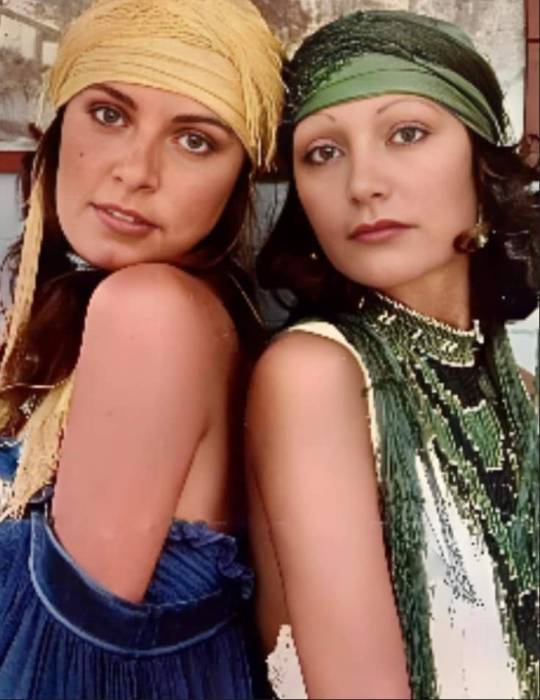
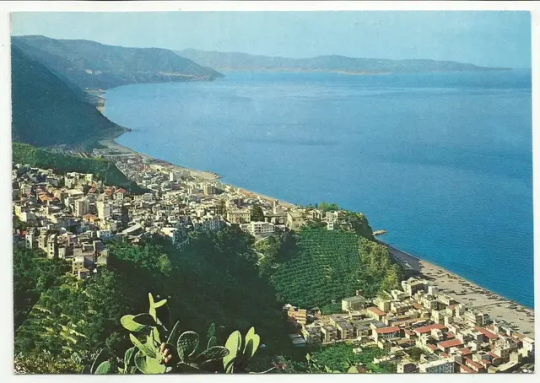
Loredana Bertè & Mia Martini: 2 voices from Calabria, Italy
Italian sisters and singers Loredana Bertè and Mia Martini were born in Bagnara Calabra (Calabria, Italy), respectively in 1950 and 1947.
Mia Martini is considered, by many experts, one of the most important and expressive female voices of Italian music, characterised by her interpretative intensity and her soulful performance.
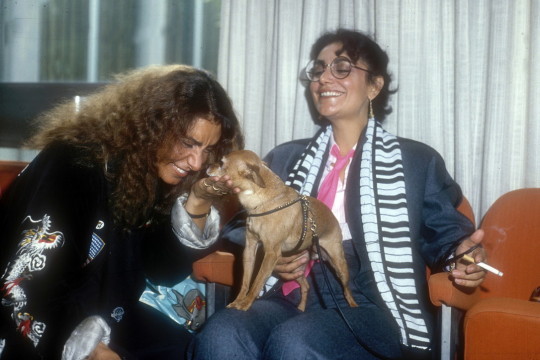
Her debut album, Oltre la collina is regarded as one of the best Italian albums made by a female artist. Hit songs like Piccolo uomo, Donna sola, Minuetto, made her one of the most popular artists of Italian music in the 1970s, both nationally and internationally. She is the only female artist to have won two Festivalbar consecutively, respectively in 1972 and in 1973.
In 1977, two important encounters occurred in Martini's life: the first with Charles Aznavour, with whom she began a musical collaboration, and the second with singer-songwriter Ivano Fossati, with whom she started an artistic and sentimental partnership.
youtube
In 1982, she sang E non finisce mica il cielo, written by Fossati, at Sanremo Music Festival, where she received the Critics Award, which was created specifically for her interpretation and which was named after her as "Mia Martini" Critics Awards from 1996, the year after her death.
In 1983, she was forced to leave the music industry and quit her career, as the music sector and colleagues considered her a person bringing bad luck and barred her from participating in any music and TV events, radio shows and concerts. This kept her away from the music scene for seven years. Only in 1989 was she able to reprise her career, when she returned to perform at Sanremo Music Festival, singing Almeno tu nell'universo, which brought her a new success.
She died on 12 May 1995 in Cardano al Campo at the age of 47.
After her death, the town Bagnara Calabra dedicated to the singer.
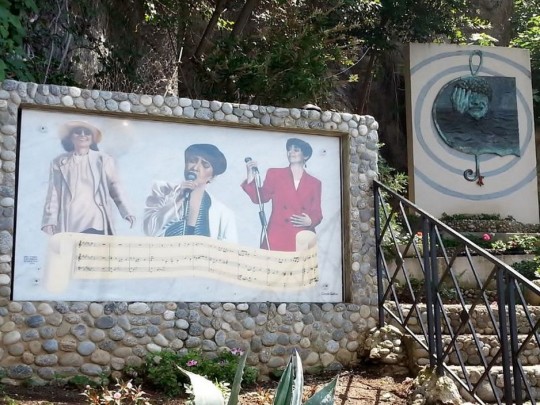
Loredana Bertè is a singer-songwriter and artist who has been in the music industry for over five decades. She has released twenty-one studio albums, five live albums, and three soundtracks throughout her career. In addition to her work as a solo artist, she has also collaborated with other renowned artists such as Gianna Nannini, Angelo Branduardi, and Claudio Baglioni.
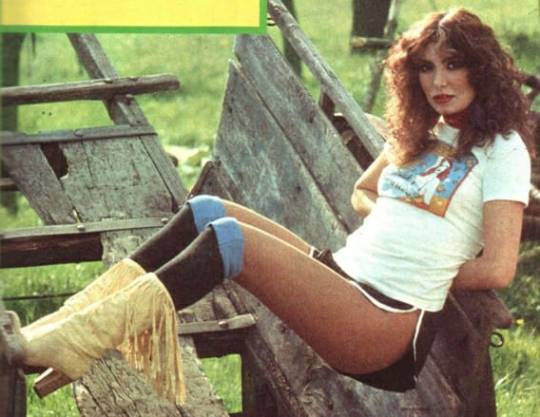
In her long career, Bertè has experimented with different genres, from rock to reggae, from funk to pop. Bertè is known for the eccentric clothing she wears onstage for her performances.
One of her most popular song is E la luna bussò, an Italian reggae ballad which stayed on the Italian Singles Chart for 29 weeks.
youtube
In the 1980s Bertè achieved success in Italy with songs such as Maledetto Luna-Park, Una Sera d'Ottobre, and 'Ti Sento'. She also released two successful studio albums during this period: 'Loredana' (1985) and 'Loredana Berté' (1986). In 1988 she represented Italy at the Eurovision Song Contest with the song 'Non siamo soli'.
Bertè is one of Italy's most beloved singers and has achieved great success throughout her career. She has sold over 12 million records worldwide and continues to be an inspiration to generations of fans across the globe.
Follow us on Instagram, @calabria_mediterranea
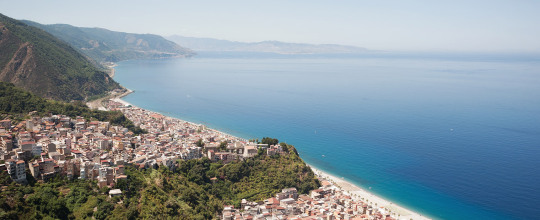
#loredana bertè#mia martini#singers#italian music#musica italiana#music#musica#calabria#italy#bagnara calabra#italia#south italy#southern italy#mediterranean#italian#landscape#italian landscape#mediterranean sea#1970s#70s#1970's#70's#women in music#italian women#Youtube#e non finisce mica il cielo#e la luna bussò
32 notes
·
View notes
Text

🇳🇴 Ketil Stokkan - Romeo
#Ketil Stokkan#Romeo#norway esc#esc norway#eurovision norway#norway eurovision#esc 1986#eurovision 1986#esc#eurovision#lovely song and performance!#also the stage is pretty nice this year
34 notes
·
View notes
Text



Cocktail Chic represents France at the 31st Eurovision Song Contest, held in the Grieg Hall in Bergen, Norway, on 3 May 1986. They were placed 17th with 'Européennes'. Photos: Rowe John [x]
5 notes
·
View notes
Text
Eurovision 2006 - Number 9 - Hari Mata Hari - "Lejla"
youtube
Perhaps the Platonic ideal of a Balkan ballad with so much pedigree it hurts.
Hari Mata Mari are old timers both in the Bosnian music scene but also at Eurovision. They entered songs in both the 1986 and 1987 Jugovizija contests to find Yugoslavia's Eurovision representatives. There have been many changes to the group since then though.
They were formed in 1985 around Hari Varešanović. He, together with the group Baobab won the Nove nade, nove snage festival and announced the formation of a new band, Hari Mata Hari. That original incarnation also included Edo Mulahalilović who was one of the participants in the fabled and first ever Bosnian national final, as well as the writer of Bosnia's 1994 Eurovision entry
The writers on Lejla are no less stellar. There's Željko Joksimović perhaps the King of the Balkan ballad and former Eurovision representative for Serbia & Montenegro. He's also one of the Eurovision stars the fans know just by their first name.
Finally there's the lyricists Fahrudin Pecikoza-Peca and Dejan Ivanović. The latter will go on to write two more of the most famous Balkan ballads in Eurovision history, Oro for Serbia in 2008 and also Adio for Montenegro in 2015. Fahurdin is Hari Mata Hari's regular song-writer but also wrote the lyrics for Bosnia's first ever, hugely emotional Eurovision entry in 1993 - Sva bol svijeta
On top of this, other Hari Mata Hari members have Eurovision connections. Also present in 1993 and making the dangerous journey out of Sarajevo in 1993 was Izo Kolečić, and the backing singers here, Ivana Čabraja and Ksenija Milošević will go on to have nine Eurovision appearances as backing singers in total. Ksenija is one of the backing singers for Eurovision winner and all-timer Molitva for Serbia in 2007
By saying that Lejla has pedigree, I'm severely undersell it. It's possibly one of the largest assemblages of Balkan and Eurovision talent ever put together on one stage.
It's a song about longing. Well it's a Balkan ballad, of course it is. Lejla is elusive, missing, leaving only trace. A trace that Hari is clinging to, following where ever it may lead, but Lejla remains an aching absence in his life.
It's a simple thing, but the drama of the instrumentation, emphasised by the simple starry staging, and the reactions of the band to Hari's words saying everything they need to. It may be simple, but it's one of my favourite uses of the 2006 stage, surrounded by the night, ghostly and haunting. It's a mood like no other.
The song was an internal selection by BHRT and they truly knew what they were doing here. It sailed through the semi-final in second place, gaining the most twelve point scores while it was doing so. It came third overall in the final behind two other acts that had televoting momentum of different kinds behind them. Lejla and Hari Mata Hari were definitely the classic Eurovision choice.
Eurovision 2006 was the climax of Hari Mata Hari's long and illustrious career in the music industry. There were tours, performances and other releases as well as more line-up changes. But this is their pinnacle - how could it not be? Their various members ploughed their own musical furrow although even now Hari Mata Hari come together to put on a reunion performance after nearly forty years in the business.
#esc 2006#esc#eurovision#eurovision song contest#Athens#Athens 2006#Youtube#internal selections#Bosnia & Herzegovina#Hari Mata Hari#Hari Varešanović#Edo Mulahalilović#Željko Joksimović#Fahrudin Pecikoza-Peca#Dejan Ivanović#Izo Kolečić
5 notes
·
View notes
Text

Samantha Karen Fox was born on 15 April 1966 in Mile End, East London, UK. Her parents were Carole Fox and Patrick Fox and she's got a little sister named Vanessa Lai Fox.
She started out as a nude model for "Page 3" of British tabloids when she was still 16, and in 1983 Sam was said to have her breasts insured for $500,000.
In 1983, she recorded with her first band, called SFX, the songs "17 and Holding", "My Old Man", and "Aim To Win" but they never broke into the charts. Sam went back to being a top model, but returned to the music business in 1986 as a solo artist.
Dismissing the notion that she was all pin-up looks and no singing talent, "Touch Me (I Want Your Body)" went to number one in 15 countries in 1986, and she had seven other Top 10 singles, namely "Do Ya, Do Ya (Wanna Please Me)" (1986), "Nothing's Gonna Stop Me Now" (1987), "Love House" (1988), "I Surrender (To The Spirit Of The Night)" (1987), "I Only Wanna Be With You" (1988), "Let Me Be Free" (1997) and "Santa Maria" (1998).
In 1995, Sam Fox created a band, called Sox, to enter the song "Go for the Heart" in the Eurovision song contest, but the UK public gave them only 65,436 votes, 4th place, not enough to represent the UK in the finals.
That year, she made a cameo appearance with Indian actor Govinda in the musical comedy Rock Dancer (1995) - and her blonde beauty in a brief stage white costume was in most lobby cards in all Indian regions.
As of 2002, Sam ranked #81 on VH1's 100 Sexiest Artists.
#samantha fox#page 3#blonde#pin-up#pin up#singer#actress#model#British#uk#united kingdom#east london#London
71 notes
·
View notes
Text
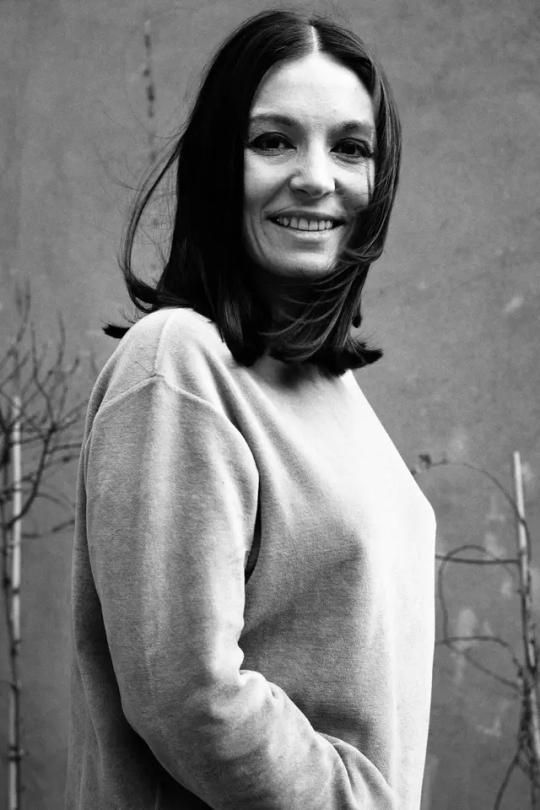
Ioanna "Nana" Mouskouri OQ (Greek: Ιωάννα "Νάνα" Μούσχουρη born 13 October 1934) is a Greek singer and politician. Over the span of her career, she has released over 200 albums in at least thirteen languages, including Greek, French, English, German, Dutch, Portuguese, Italian, Japanese, Spanish, Hebrew, Welsh, Mandarin Chinese and Corsican.
Mouskouri became well known throughout Europe for the song "The White Rose of Athens", recorded first in German as "Weiße Rosen aus Athen" as an adaptation of her Greek song "Σαν σφυρίξεις τρείς φορές" (San sfyríxeis tris forés, "When you whistle three times"). It became her first record to sell over one million copies.
Later in 1963, she represented Luxembourg at the Eurovision Song Contest with the song "À force de prier". Her friendship with the composer Michel Legrand led to the recording by Mouskouri of the theme song of the Oscar-nominated film The Umbrellas of Cherbourg. From 1968 to 1976, she hosted her own TV show produced by BBC, Presenting Nana Mouskouri. Her popularity as a multilingual television personality and distinctive image, owing to the then unusual signature black-rimmed glasses, turned Mouskouri into an international star.
"Je chante avec toi Liberté", recorded in 1981, is perhaps her biggest hit to date, performed in at least five languages – French, English as "Song for Liberty", German as "Lied der Freiheit", Spanish as "Libertad" and Portuguese as "Liberdade". "Only Love", a song recorded in 1985 as the theme song of TV series Mistral's Daughter, gained worldwide popularity along with its other versions in French (as "L'Amour en Héritage"), Italian (as "Come un'eredità"), Spanish (as "La dicha del amor"), and German (as "Aber die Liebe bleibt"). It became her only UK hit single when it reached number two in February 1986.
Mouskouri became a spokesperson for UNICEF in 1993 and was elected to the European Parliament as a Greek deputy from 1994 to 1999.
In 2006 she was a special guest on Eurovision Song Contest 2006's final, presented as the best selling artist of all time.
In 2015, she was awarded the Echo Music Prize for Outstanding achievements by the German music association Deutsche Phono-Akademie.
Mouskouri has been married twice: first at age 25, to Yorgos (George) Petsilas, a guitarist in her backing band (the trio "The Athenians") They had two children (Nicolas Petsilas in 1968 and Hélène (Lénou) Petsilas in 1970) but divorced when Mouskouri was 39. Not long after that, she started a relationship with her record producer André Chapelle, but they did not marry then because she "didn't want to bring another man into the family" and divorce was against her conservative upbringing. They eventually married on January 13, 2003, and live primarily in Switzerland.
Daily inspiration. Discover more photos at Just for Books…?
6 notes
·
View notes
Text
Eurovision Fact #704:

David Bowie covered "Nel Blu Dipinto Di Blu" by Domenico Modugno, which represented Italy in 1958, for the original soundtrack of Absolute Beginners, a 1986 musical movie.
[Sources]
Volare (Nel Blu Dipinto Di Blu), YouTube.com.
Absolute Beginners, IMDb.com.
Participants of Hilversum 1958: Domenico Modugno, Eurovision.tv.
#esc facts oc#eurovision#eurovision song contest#esc#eurovision facts oc#david bowie#domenico modugno#esc 1958
8 notes
·
View notes